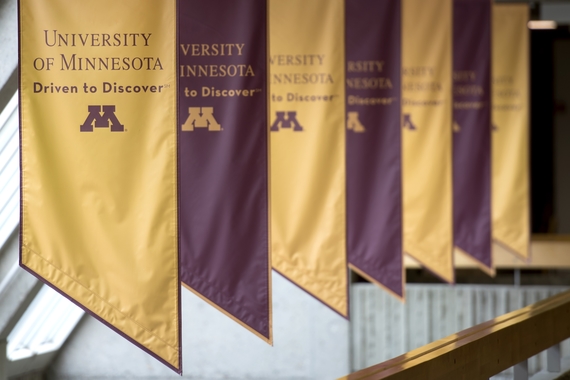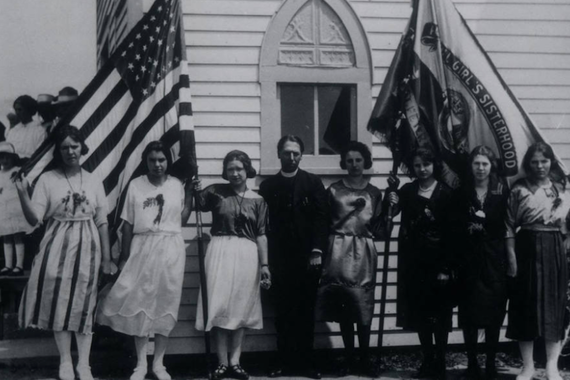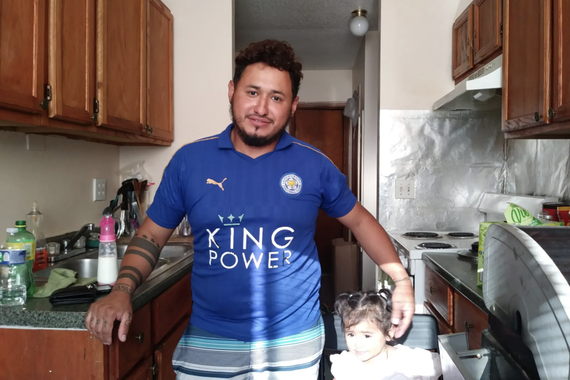Meet Shannon Gibney
The Immigration History Research Center (IHRC) is delighted to announce that Shannon Gibney, the author of Dream Country, will be joining us at the collaborative Afromigrancy: History and Memory, a workshop that will explore the challenges — and ongoing efforts — of documenting the lives and experiences of African immigrants and refugees in Minnesota.
The workshop, which will be held on Thursday, April 18, at the Elmer L. Andersen Library, will feature about a dozen writers, journalists, artists and community leaders who are playing a vital role in documenting and preserving the stories of black migrants in the state.
Gibney, an award-winning young adult fiction writer, will read excerpts from her latest book, Dream Country, and participate in public conversations about mnemonic strategies and techniques, as these practices relate to contemporary African migrants’ remembrances.
Here’s Gibney’s conversation with the IHRC:
IHRC: Writing one’s own short bio can be an exercise in record-creation. Please describe yourself in a way that you want the general public to know who you are and what you do.
Gibney: I identify as a mixed black transracially adopted woman writer (!). That's a mouthful, but that's how I move through the world. I am also a teacher, a mama, a friend, a daughter, a sister, a Buddhist, a Nerd of Color, a runner, an empath, a troublemaker, a trickster, a Midwesterner, an active community member, and an avid reader.
IHRC: L.P. Harley, a British novelist, once said, “The past is a foreign country.” Do you agree with this pronouncement? When looking back to account for details of what happened during your or family’s journeys to this country, does your or family history of migration appear foreign to you?
Gibney: Although that quote is certainly evocative, it doesn't actually speak deeply to me and my personal relationship to the past. Although I have been produced from ruptures, like many immigrants, I do not come from an immigrant family and I am not an immigrant — although I have children of an immigrant. As a transracial adoptee, however, the past is less of a "foreign country" than a series of endless possibilities, some open and some foreclosed. The image that comes to mind is alternate universes.
IHRC: What specific conditions or circumstances in the present cause you to recall memories of your homeland in unexpected ways?
Gibney: As I said, I am not an immigrant, so this is my homeland. Like all adoptees, however, the endless search for home and the stories that constitute it is my life's work.
IHRC: If you could take one book — or one enterprise story — with you to 2076, the year of the United States Tricentennial, the dawn of the fourth century of the founding of the United States, what would be your choice? The book, of course, does not have to be written in English.
Gibney: Oh my God, that is a hard one. So many books are important to me, for so many reasons. I think it would have to be Beloved, by Toni Morrison. That book so brilliantly and brutally expresses the knot of African American life in white supremacist America through history that it would be an invaluable tool for future Americans to use to dissect whatever their current condition might be.
IHRC: Let’s say you have been given an opportunity to contribute to a time capsule project to offer future historians raw materials from the past (also known as primary sources) so that they can engage in the craft of historical research and writing about Afromigrancy. The container of artifacts and records will remain sealed and stored safely for 100 years (until 2119) in the basement of the Elmer Andersen Library under the stewardship of the Immigration History Research Center Archives. Choose five items you would donate from your personal, family, and community collections to this project.
I would donate:
- Interviews with Liberian refugees and migrants who so bravely and generously shared their stories with me for Dream Country
- A very rare book on Loma history and language that my children's father's family gave me. (The Loma are an ethnic group in Northeastern Liberia.)
- A photo of me, my children, my ex-husband, and in-laws, in front of the thriving church they helped found outside Monrovia, Liberia.
- Notes from my research for Dream Country, including a notebook containing interviews with various Liberians I encountered on my first trip there, in summer 2008.
- Any other writings community members would like to contribute, detailing their personal and family histories here and back in Liberia


